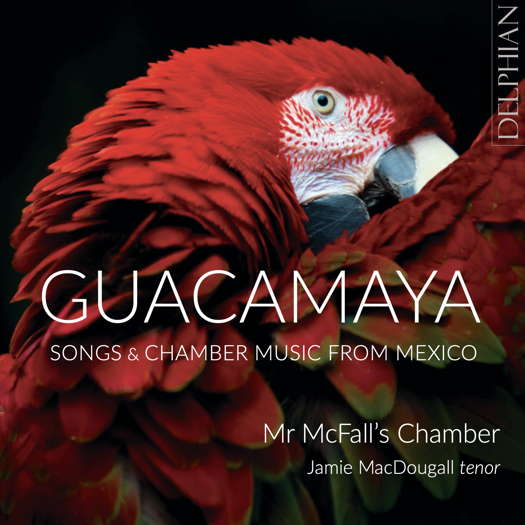 DISCUSSION: What is a work? John Dante Prevedini leads a discussion about The performing artist as co-creator, including contributions from Halida Dinova, Yekaterina Lebedeva, Béla Hartmann, David Arditti and Stephen Francis Vasta.
DISCUSSION: What is a work? John Dante Prevedini leads a discussion about The performing artist as co-creator, including contributions from Halida Dinova, Yekaterina Lebedeva, Béla Hartmann, David Arditti and Stephen Francis Vasta.
- Arpaviva Recordings
- modern
- Elizabeth Iona Brown
- Gunther Schuller
- Paul Osterfield
- Skalkottas
- Pierre-Claude Foucquet
- William Busch: Elegy for Violoncello and Piano
 PODCAST: Join Jenna Orkin, Maria Nockin, John Daleiden, Gerald Fenech, Julian Jacobson, Patrick Maxwell, Giuseppe Pennisi and Mike Wheeler for a fascinating fifty-minute audio only programme.
PODCAST: Join Jenna Orkin, Maria Nockin, John Daleiden, Gerald Fenech, Julian Jacobson, Patrick Maxwell, Giuseppe Pennisi and Mike Wheeler for a fascinating fifty-minute audio only programme.

A Particular Mexican Sensibility
PAUL SARCICH is impressed by Mexican music recorded by Mr McFall's Chamber
'... a very interesting and well-presented disc.'
Question: why a tribute to Mexican music from a Scottish ensemble? Part of the answer lies with the chamber group on this disc: Mr McFall's Chamber, essentially a string quintet with piano and percussion added as and when. Run by Robert McFall, it is a deliberately genre-spanning group that has over the years worked in everything from popular to world to contemporary classical music. The other part lies with the tenor soloist, Jamie MacDougall, married to a Mexican and steeped in Mexican music from the seventeenth century religious baroque through to the popular songs and art music of the twentieth.
This recording deals with the twentieth century, with names such as Ponce, Revueltas and Lara that will be familiar, mixed with the less so; and spanning the salon to the recital hall, perhaps taking in something of the streets along the way. It opens with a truly gorgeous song, Cuando vuelvo a tu lado, by María Grever, who had a successful career as a Hollywood composer but also wrote hundreds of Mexican boleros. If you loved the balladic side of the Buena Vista Social Club you'll go for this - it might be more familiar in its English version, as What a Difference a Day Makes, but it just seems so much more sensuous and bitter-sweet in Spanish, especially given a lush accompaniment as here.
Listen — María Grever: Cuando vuelvo a tu lado
(DCD34286 track 1, 2:26-3:26) ℗ 2023 Delphian Records Ltd :
Her other song, Júrame, is not too far behind. The lyrics of all songs are given in Spanish and English in the booklet, so one can savour the passion of the latino soul.
Agustín Lara's famous Granada is here, the arrangement mixing the full-blooded - featuring some nifty cello fills which I would have liked to hear more forward in the mix - with some lovely quieter sections. There are many orchestral arrangements of this but it is good to hear it with just quintet, piano and percussion. His Arráncame la vida (Tear Out My Life!), a tango, has some wonderfully over-the-top lyrics, but the presentation itself stays under control. Joaquín Heras's Canción en el puerto is for cello and piano, a deceptively simple song-like piece, but a long way from the earlier popular song styles on the album. It is romantic, but with an edge, and played so by cellist Su-a Lee and pianist Claudio Constantini.
Listen — Joaquín Heras: Canción en el puerto
(DCD34286 track 4, 0:00-0:58) ℗ 2023 Delphian Records Ltd :
Among the more modern composers here we have Javier Álvarez (born 1956), whose Metro Chabacano was used to accompany a kinetic sculpture outside the eponymous underground station in Mexico City. It has a motoric, driving quaver pulse, but does not become excessively minimalistic due to the wandering melodic material, constantly shifting accents and varying patterns of harmonic material and bassline. It does however seem strangely congruent with the idea of trains somehow.
Listen — Javier Álvarez: Metro Chabacano
(DCD34286 track 2, 0:00-0:55) ℗ 2023 Delphian Records Ltd :
Arturo Márquez (born 1950) is represented by Homenaje a Gismonti, a tribute to the Brazilian guitarist, which starts with pizzicati redolent of the guitar. Like the Álvarez, it is built on repeated patterns but very inventively continually refreshes itself by varying all aspects of the music, and in the process really putting the string quintet through its paces, milking it for everything it can do. Cross rhythms and metrical changes all add to the fun and complexity, before a unison finish. It needs all the energy that the quintet put in to it.
Having moved out of the salon into the concert hall, we have a major composer in the form of Silvestre Revueltas. Dying young in 1940, he nevertheless made a major mark on Mexican music, following the lead of Carlos Chávez, whose work tried to excavate Aztec music from the past.
As a composer seeking to turn away from nineteenth century European romanticism and colonial influences, his Tres piezas for violin and piano display Bartókian modernism in the treatment of folk material, and a touch of Stravinskian primitivism to boot. The first piece is a driving affair, contrasted with a second that is largely pentatonic as so much folk music is; while the third returns to the Chávez-influenced world of the first, showing Revueltas developing a particular Mexican sensibility in the context of the time he lived. This is a piece that takes no prisoners, and the performers (either Cyril Garac or McFall on violin, and Constantini - unfortunately the track list doesn't list soloists) are equal to the often hair-raising requirments of it.
Listen — Silvestre Revueltas: Allegro (Tres piezas)
(DCD34286 track 16, 0:00-0:43) ℗ 2023 Delphian Records Ltd :
Coming into the world thirteen years after Revueltas and outliving him by eighteen, Pablo Moncayo might be expected to push moderism even harder, but judging by his Sonata for Viola and Piano he actually stayed closer to the source than Revueltas. The first movement certainly has more Chávezian influences showing - the free pentatonality and driving rhythms, though not without elements of romance and lyricism. The second opens with monumental piano writing which gives way to the restrained emotion of the viola, nicely judged by Brian Schiele. There's a touch of being out in the Mexican desert about this, even though a lot of standard compositional techniques are obvious. It is however, a moving movement.
Listen — Pablo Moncayo: Lento (Viola Sonata)
(DCD34286 track 14, 0:00-0:57) ℗ 2023 Delphian Records Ltd :
The third is very dancey to open - bouncy triple time is followed by a section of more four-square writing of a classical European stamp, and these alternate throughout. This gives a snapshot of the various influences pulling on composers like Revueltas and Moncayo as they tried to escape the European mainstream and remake a nationalist music after four centuries of European cultural dominance.
And so we come, as we must, to Manuel Ponce, surely the granddaddy of Mexican music, whose works ranged from salon songs like Estrellita - his most popular ever - to orchestral and chamber music, folk song arrangements and much music for guitar and piano, Ponce being unafraid to blend popular and 'classical' styles. Estrellita is given here in an arrangement derived from Ponce's voice and piano original and a violin and piano version by Jascha Heifetz. It sounds a little odd in the second verse when Heifetz starts pulling the harmonies around, and is made even odder in the third when Lee forsakes her cello for a musical saw! This, says McFall, is a wink to the audience at the end of concerts, and it winks to us as the last track on the disc too.
Listen — Manuel Ponce: Estrellita
(DCD34286 track 19, 4:46-5:30) ℗ 2023 Delphian Records Ltd :
Ponce's other song, Por ti mi corazón, is another latino heart-wrencher, up there with Grever, revelling in the poetry of the lyrics, but arranged for the band and delivered by MacDougall with a restraint that stops it becoming over-sentimental.
Those who only know Ponce by his salon songs might be surprised at his Cuatro danzas mexicanas, written not long before his death. If they are based on folk dances at all, this is well-hidden under a canopy of virtuosic piano writing, Ponce unafraid to write fistfuls of notes - but why not, pianists love that. They all start Vivo and finish at a slower speed - quite an unusual construction. Constantini relishes the challenge and gives them all the drama and rubato they need. And Ponce puts himself well beyond being a mere songwriter.
Listen — Manuel Ponce: Vivo – Poco meno (Cuatro danzas mexicanas)
(DCD34286 track 9, 1:19-1:59) ℗ 2023 Delphian Records Ltd :
All performers give this music a splendid outing, as soloists or a group, and the recording is beautifully balanced and clear. MacDougall may not let himself go as much as a latino singer might in some of these songs, but his voice is warm and expressive, and he obviously has a great love and knowledge of this material. The mix of styles might put some purists off, but they'd be missing out on a very interesting and well-presented disc.
Copyright © 13 June 2023
Paul Sarcich,
Sheffield, UK



